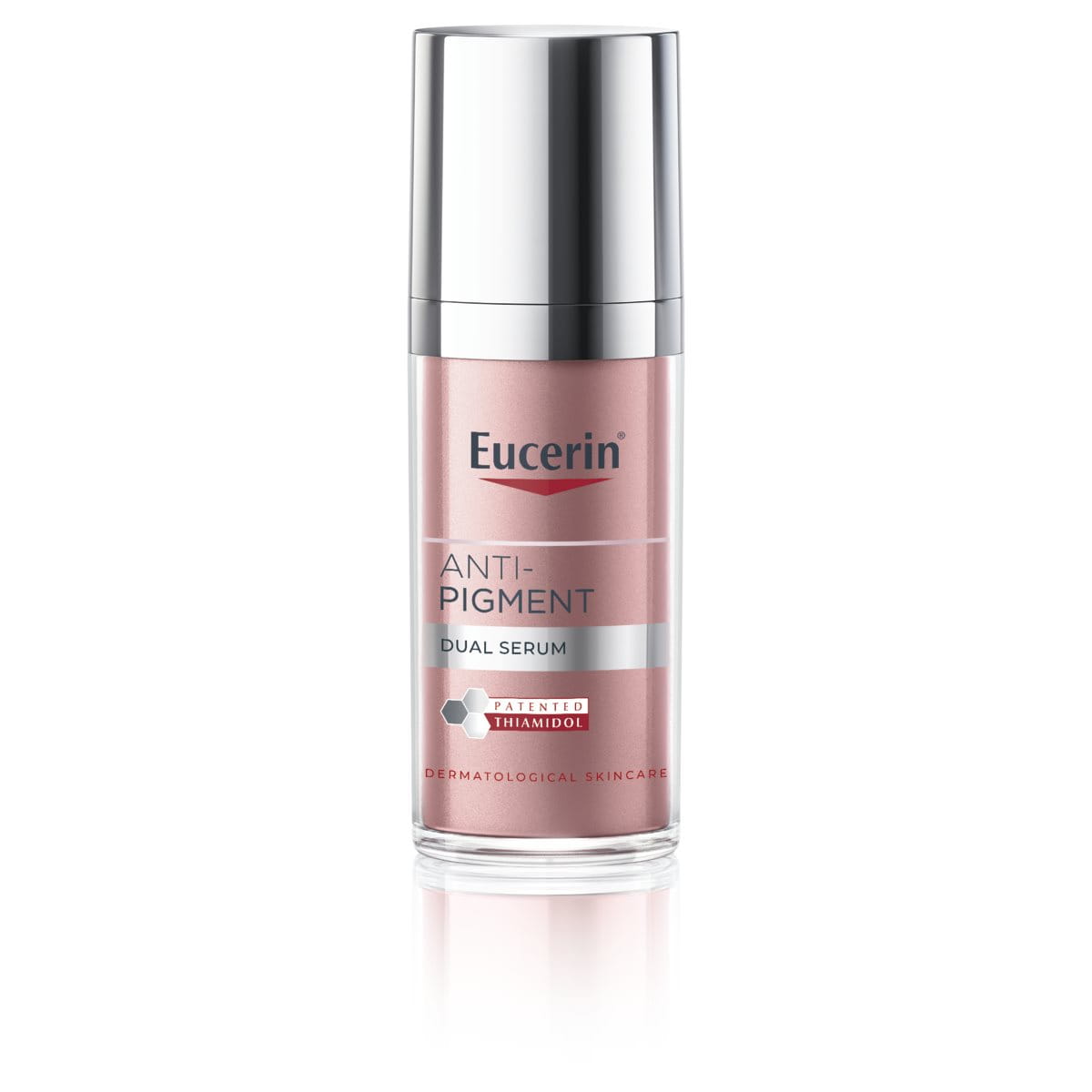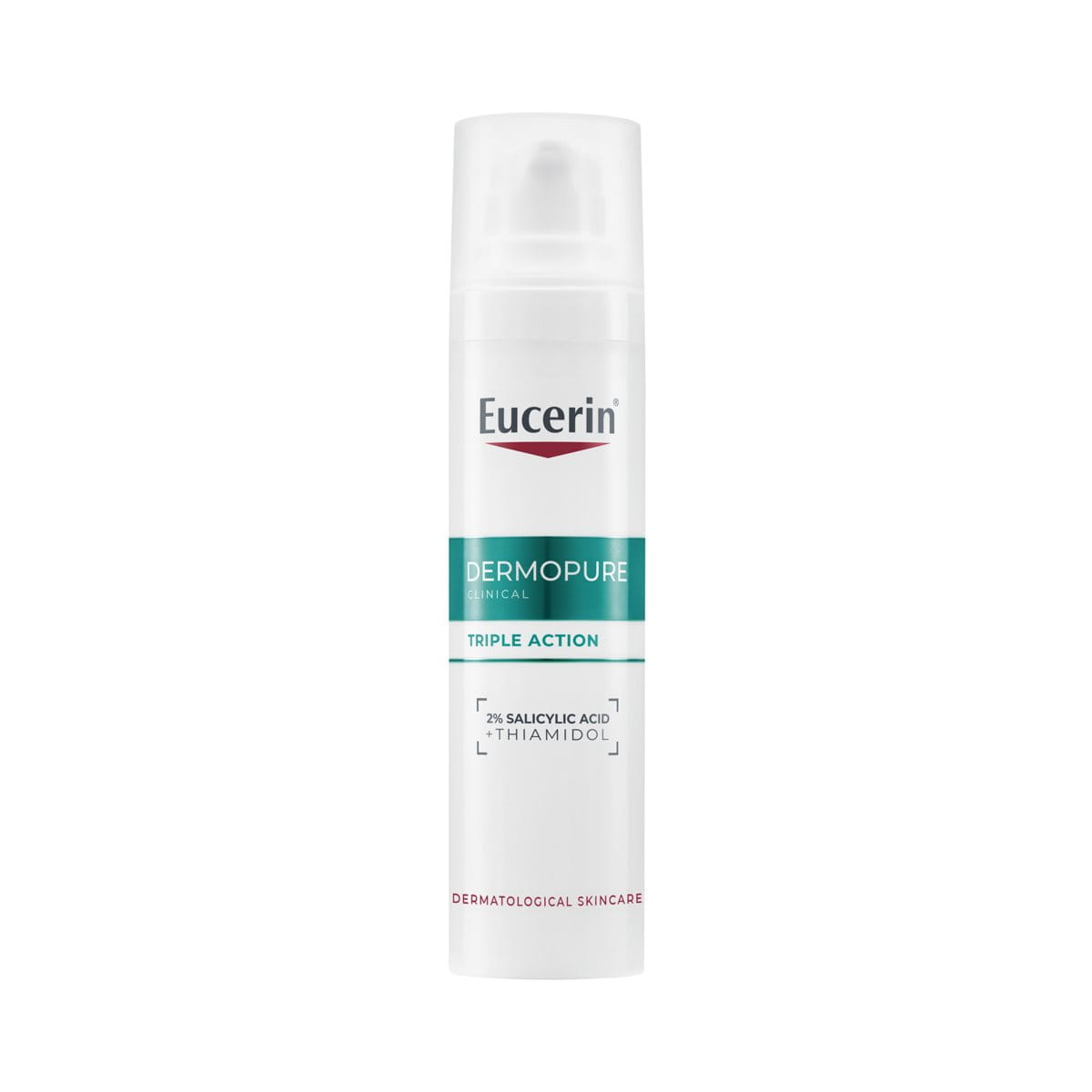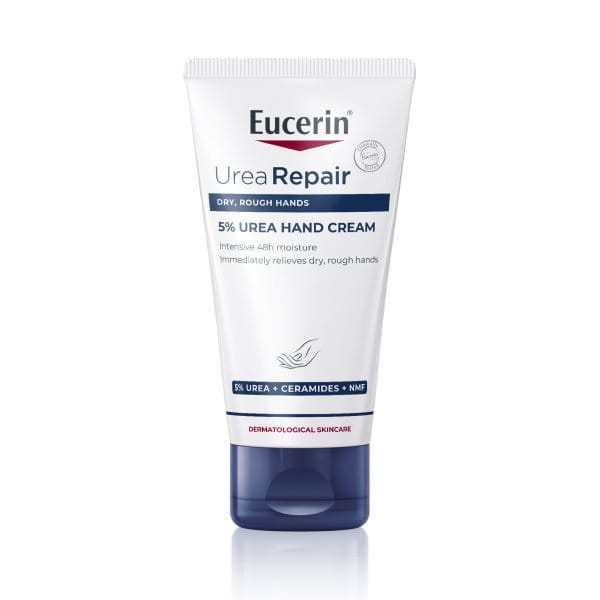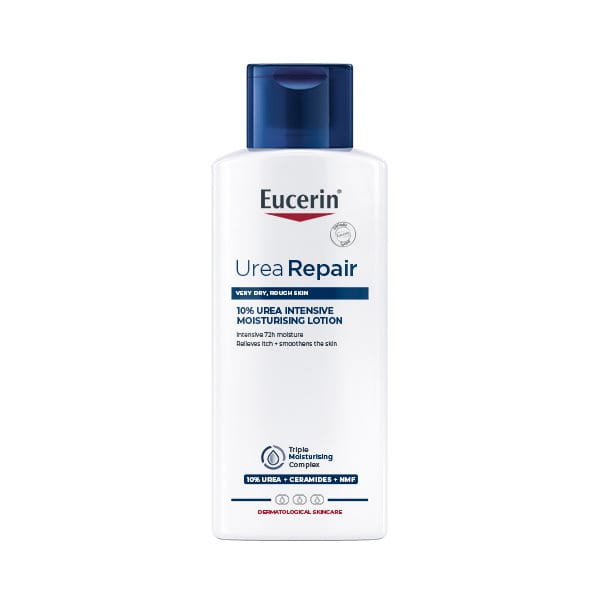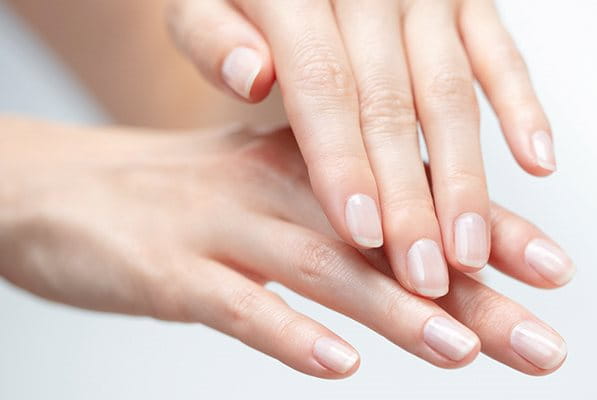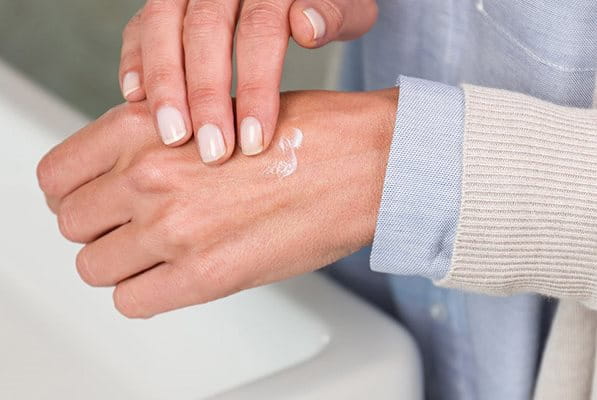Psoriasis on hands is a type of psoriasis that causes a build-up of plaques on your hands and fingers, which can then blister, swell or crack. Follow this guide to understand why this happens and learn about the best methods to treat hand psoriasis.
What is psoriasis on hands
Hand psoriasis is one of the most difficult types of the chronic condition to live with, since we use our hands throughout the day for a range of tasks such as getting dressed, driving, or carrying shopping. Straightforward activities like these can cause friction and inflame the already-sensitive skin, worsening symptoms by cracking or bleeding.
Psoriasis on the hands usually develops on the palms, though it also shows up on knuckles, nails and the backs of your hands. Palmoplantar psoriasis is the name given to a breakout of psoriasis on the hands and feet.
Palmar psoriasis
Palmar psoriasis only affects your palms, and can sometimes look very similar to atopic dermatitis on the hands. While both conditions cause dry skin, palmar psoriasis also causes dry, red or thickened skin with sore, deep cracks. They are also reported to feel different, with eczema causing an intense itch and psoriasis causing burning and stinging too. Palmar psoriasis can also lead to pus-filled bumps on your hands (pustular psoriasis).
Nail psoriasis
Up to 35% of psoriasis sufferers experience some form of impact on their nails, while the figure rises to 80% for people with psoriatic arthritis. Some common issues with nails include:
- Pitting (deep or shallow holes in the nail)
- Onycholysis (where the nail separates from the nail bed)
- Deformation (shape of the nail changes)
- Discolouration (unusual colours e.g. yellowy-brown)
- Thickening of the nail
Psoriasis on hands causes
Hand psoriasis is linked to the same causes as psoriasis in general. Scientists do not know the exact causes, but they know a person’s genes and immune system are contributing factors to psoriasis. Doctors estimate that around 40% of psoriasis patients have a family member who also suffers with the condition.
It is believed that psoriasis occurs when something is wrong with the immune system. White blood cells, named T cells, normally protect the body from disease, however hand psoriasis occurs when the body triggers these cells in the hands by mistake. Due to the higher amount of these white blood cells, the lifespan of skin cells in the hand is shortened. This results in skin build-up and swelling because of the faster turnover of cells.
Another contributing factor is constant stress on the hands, for example from a labouring job or using rough gloves for work. This can trigger the Koebner phenomenon, where skin lesions develop on lines of trauma.
Other environmental factors can worsen symptoms for psoriasis on the hands, including weather changes, stress, medicines, infection and hot or dry air. The following factors can increase your risk of psoriasis in general:
- Stress: Stress affects the immune system, so high stress levels are linked to psoriasis.
- Family history: Though you can’t catch psoriasis, you could be more likely to get the condition if it runs in your family, especially if both your parents have it.
- Smoking: The risk of psoriasis is increased if you smoke, while smoking also worsens the severity of psoriasis symptoms in those who suffer from it.
- Diet: Research published by nutritionists in 2016 found that psoriasis may be more common in people who have dietary intolerances such as gluten sensitivity.
- Viral and bacterial infections: People with compromised immune systems and persistent infections, such as young children or those with HIV, have an increased risk of psoriasis.
- Obesity: Those who have inflammatory factors that occur with obesity are more at risk, because some rashes tend to form in skin folds and creases.
Symptoms of psoriasis on hands
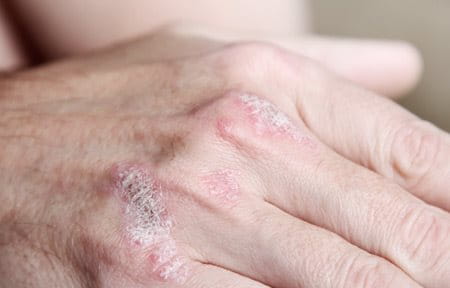
Hand psoriasis symptoms are not too different to those from psoriasis on other areas of the body. This condition forms well-defined, scaly, red lesions which build-up as plaques. Psoriasis on the hands can also cause your skin to:
- crack
- redden
- scale (with silvery flakes)
- blister or develop pustules
- thicken or swell
- itch or burn
- bleed, especially when scratched
As the hands are delicate, the skin between the fingers are particularly prone to crack, peel or bleed. Everyday tasks such as preparing food, washing up or writing can become difficult and painful.
Treating psoriasis on hands
Since psoriasis is a chronic condition, treatments can help control symptoms but they're not designed to cure the condition completely. To avoid scarring and long-lasting damage, treatment should start as soon as possible. The skin on the hands is delicate, so take care when applying treatments to these areas. Treatments are usually topical, in pill form, injections or UV therapy.
Topical treatments for mild hand psoriasis include: coal tar products like gels or shampoos to slow growth and reduce inflammation, salicylic acid to soften scales, or corticosteroids as creams or ointments to reduce plaques. A combination of those could work better than individual use.
For moderate to severe psoriasis on hands, a doctor may recommend treatments such as Methotrexate (in pill form), Soriatane (an oral retinoid) or Bathwater PUVA (a form of phototherapy). All of these aggressive therapies tend to have greater side effects.
However the Eucerin UreaRepair range can also help manage the symptoms of psoriasis on the hands. The range has been formulated with soothing ingredients for everyday use to maintain your skin's health and provide relief from itching or redness, while bolstering your skin’s natural barrier.
Nail psoriasis treatment
Nail psoriasis is challenging to treat because psoriasis usually affects the nails when it's being formed. Corticosteroid creams or ointments and light therapy can be used, but the nail bed is hard to penetrate using topical treatments. If these methods are unsuccessful, your doctor is likely to recommend corticosteroid injections into each required nail bed.
Alternatively, cosmetic repair involving nail filing, polishing, scraping or even surgical removal of the nails could be pursued.
Treating hand psoriasis at home
Since psoriasis is a chronic condition, patients will need to maintain a skin care routine to help manage symptoms. As well as the treatments described above, the following habits will help to control psoriasis on the hands and prevent skin cracking or bleeding in future flare-ups:
- When washing your hands, use warm instead of hot water.
- After using your hands for tasks like washing up, apply a hand cream such as the Eucerin UreaRepair Plus 5% Urea Hand Cream.
- Use a gentle, moisturising hand soap or even soap substitutes.
- Soaking your hands in cool water with Epsom salt or oats for around 10 minutes can loosen scales and soothe irritated skin.
- Do not scrub your hands vigourously with an exfoliating brush, as this can split the skin - use a soft cloth to remove scales instead.
- Ensure your body gets enough sunlight, but apply suncream before going out in hot weather.
- Keep a list of factors that cause flare-ups and avoid these in future.
Our brand values

We deliver a holistic dermo-cosmetic approach to protect your skin, keep it healthy and radiant.

For over 100 years, we have dedicated ourselves to researching and innovating in the field of skin science. We believe in creating active ingredients and soothing formulas with high tolerability that work to help you live your life better each day.

We work together with leading dermatologist and pharmacist partners around the world to create innovative and effective skincare products they can trust and recommend.
